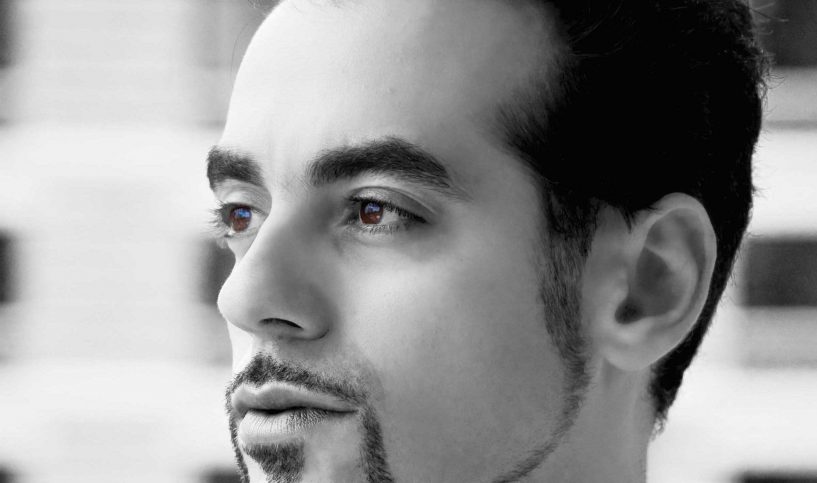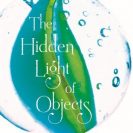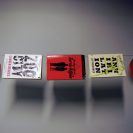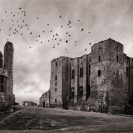It has been 6 years since we last featured our friend, Poet and Aphoristic writer extraordinaire Yahia Lababidi, in the pages of bazaar. With the release of his latest book Barely There, he continues to endeavor on the same mystical journey that influenced his earlier works: equal parts spiritual signposts and wise travelling companion on the walk of life, they maintain their place as words to live by (or at the very least—nearby). As a child who spent his early school years in Kuwait, he began the transcontinental literary journey that would lead him from Nietzsche to Rumi in as many short breaths. Still, to date, it is in the United States that he currently resides and has so far found his largest audience. Already becoming more widely read locally by those who seek out new and interesting Arab voices, he is thus currently in the process of partnering with more booksellers regionally. We check in with him to catch up on the power of words and how such big ideas can be expressed through such minimalistic approaches to art.
How did you first get into writing?
I grew up in a home where there was an informal literary salon, with intellectual and artistic luminaries like Luis Awad, Youssef Idries, Youssef Francis, and later Ahmed Ragab. So, it was in the air from very early on, even before I knew that it was to be my calling. My parents were also very encouraging. Reading the likes of Gibran, Wilde, Hesse and Nietzsche in my teens proved to be decisive, since they seemed to know me better than I knew myself. There was no turning back after that.
What/Who inspires your writings and why?
Everything really, I believe that if one pays proper attention, all things yield their secrets.
What prompts you to tackle different modes of writing?
To date, I’ve published several books in different genres: aphorisms, essays, poetry and conversations. Aphorisms, or short, original sayings, are perhaps the closest to my heart, and what my forthcoming book will be, once I find the right publisher for it. These brief arts are, I believe, what’s worth quoting from the soul’s dialogue with itself.
Essays for me are more of a cerebral practice, such as my collection Trial by Ink: from Nietzsche to Bellydancing, and are thus more suitable for analytical thinking. Poetry is perhaps the marriage of mind and soul, while conversations, in the case of my last book, The Artist as Mystic, are a collaborative art – one that I hold in high regard.
In your opinion, what has been the hardest challenge you have faced in your artistic career so far?
The deprivations of the literary life are subtle. For one, it’s not exactly the best way to make a living. Secondly, art is a jealous mistress, and often requires that one live like something of a hermit or a mad monk, at times.
But, the rewards, are far deeper and transformative. To be able to connect with strangers on such an intimate level is an immeasurable privilege, and the artist is always learning from their own art how to ‘Be and Become’.
On a more personal level, one challenge that has been there from the beginning but seems to have gotten even trickier lately is how to share the fruits of Silence (the greatest teacher of all) in a manner that does not betray the life of the Spirit. In essence, how to use words to speak of that which is just out of reach of words…
How has the Middle Eastern and Western worlds reacted to your art (feel free to elaborate on either or both)?
I am fortunate to have a small, but loyal, readership among an English- speaking segment in my homeland, Egypt. The UAE was kind enough to invite me to read in their International Book Fair in Sharjah, and there’s been a smattering of interest in both Lebanon (where my father is from) and Kuwait (where I went to school as a kid). But, it is in the US, where I’ve been lucky to publish 5 books in the last 7 years, that I’ve received the widest attention.
Is there a prevailing message you are trying to communicate with your pieces?
It is perhaps not for me to say this, but to paraphrase a generous writer friend of mine—I should like to leave readers more awake, to stir them to a higher consciousness.
What is your dream for your art / what would you like to accomplish in the future?
The dream, the ideal, really, is to bridge the gap (maybe even gulf) between the person and the artist. In other words, to be equal, and worthy, of what I write.
KNEELING IN STAGES
Twenty years ago, a mighty spirit
whispered to me and rearranged my days
Drink, it said, of solitude, taste of silence;
I did as told and it left me a writer
Now, it’s back again with grander designs
to rewrite my soul or transform my being
Renounce, it insists, both word and world games
and I have no choice but to submit and bow.
BREATH
Beneath the intricate network of noise
there’s a still more persistent tapestry
woven of whispers, murmurs and chants
It’s the heaving breath of the very earth
carrying along the prayer of all things:
trees, ants, stones, creeks and mountains alike
All giving silent thanks and remembrance
each moment, as a tug on a rosary bead
while we hurry past, heedless of the mysteries
And, yet, every secret wants to be told
every shy creature to approach and trust us
if we patiently listen, with all our senses.
Check Vimeo for a video collaboration with film-maker Swoon, for the above poem, ‘Breath’. Yahia can be found on Twitter: @YahiaLababidi. You can also read blurbs from his past books at: https://wipfandstock.com/store/Barely_There_Short_Poems. You can pick up his new book, available on Kindle, by going to: amazon.com/author/yahialababid.











